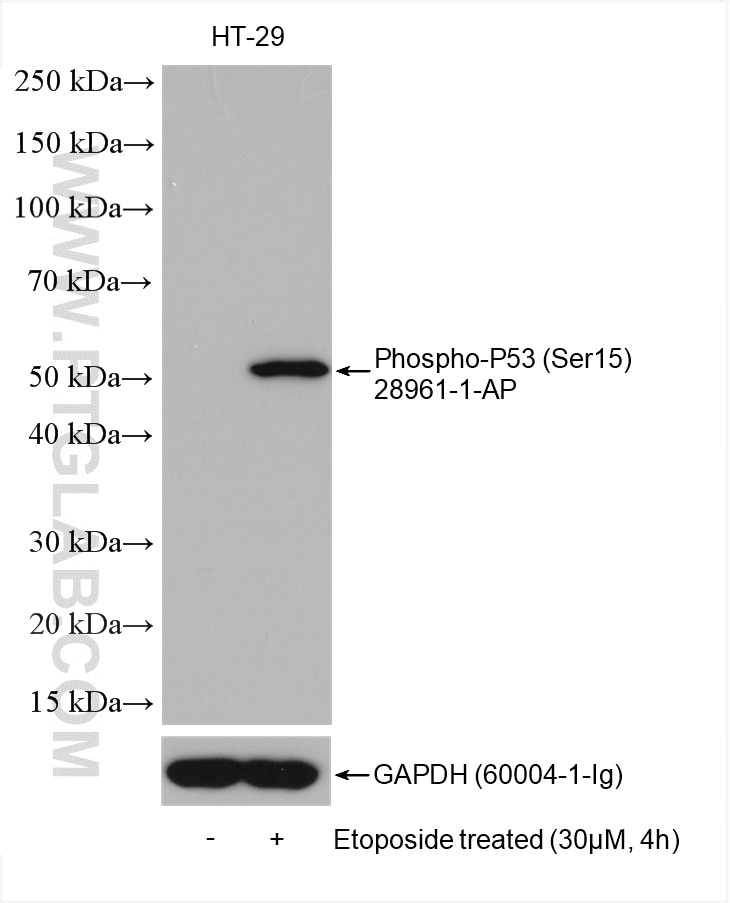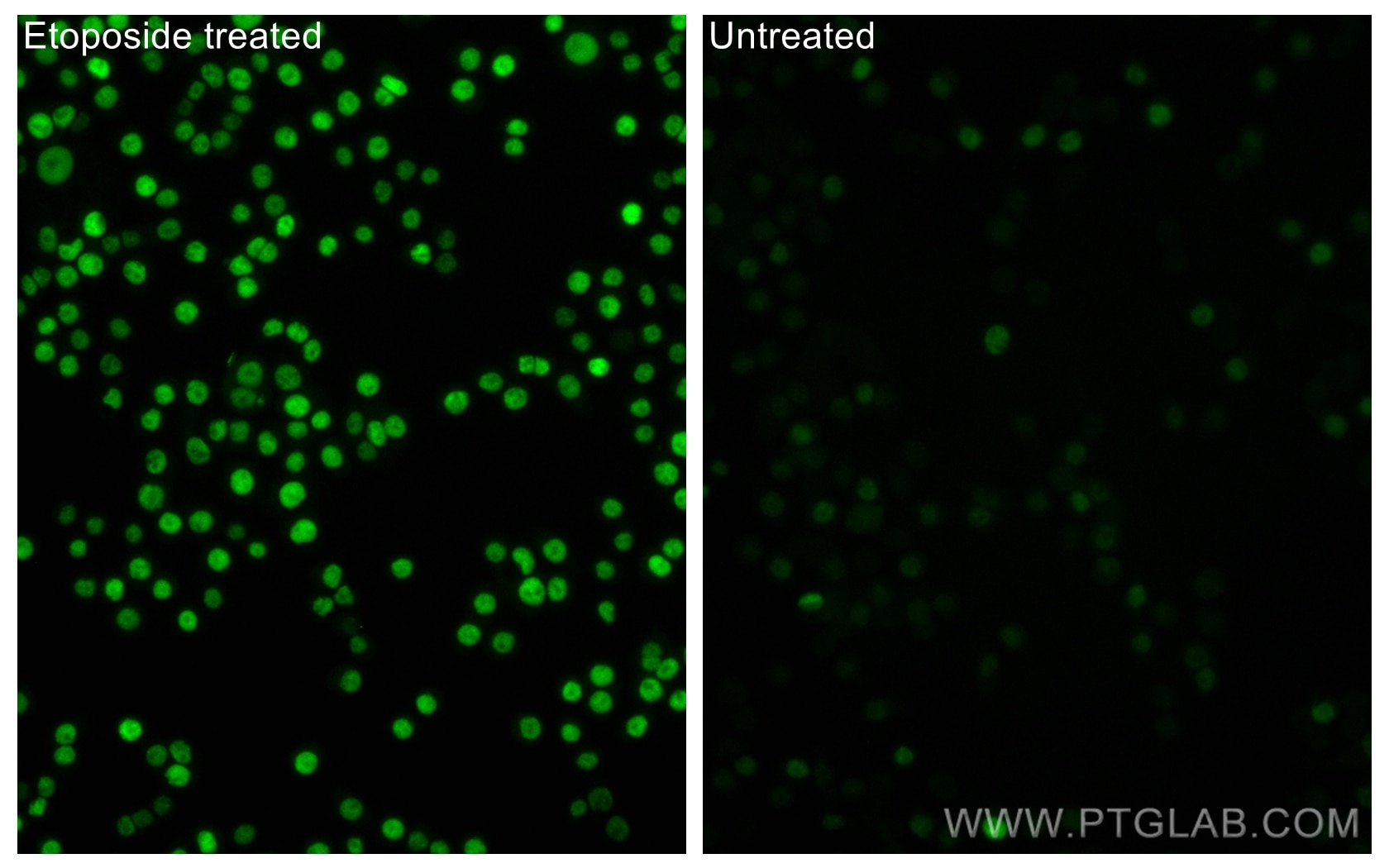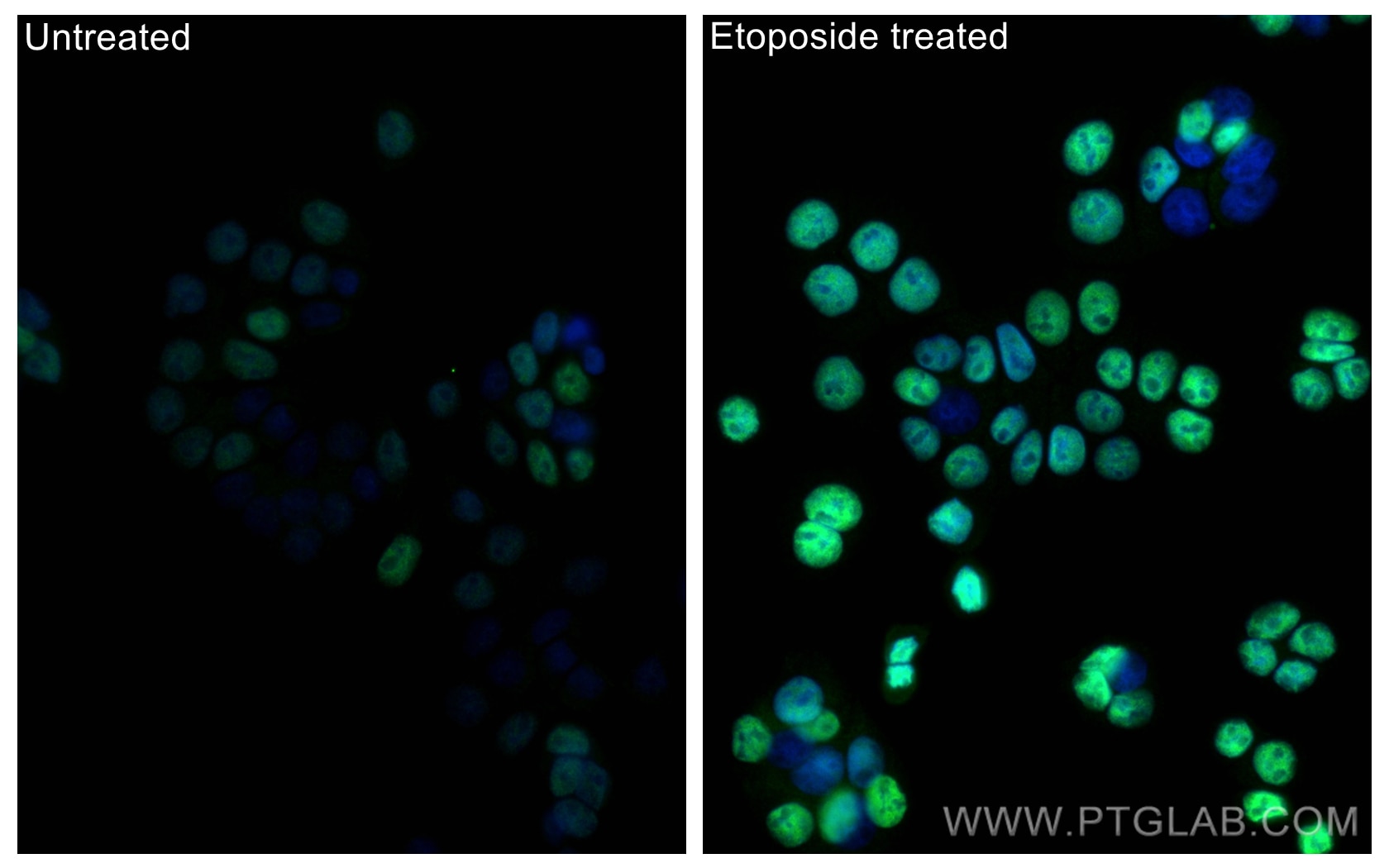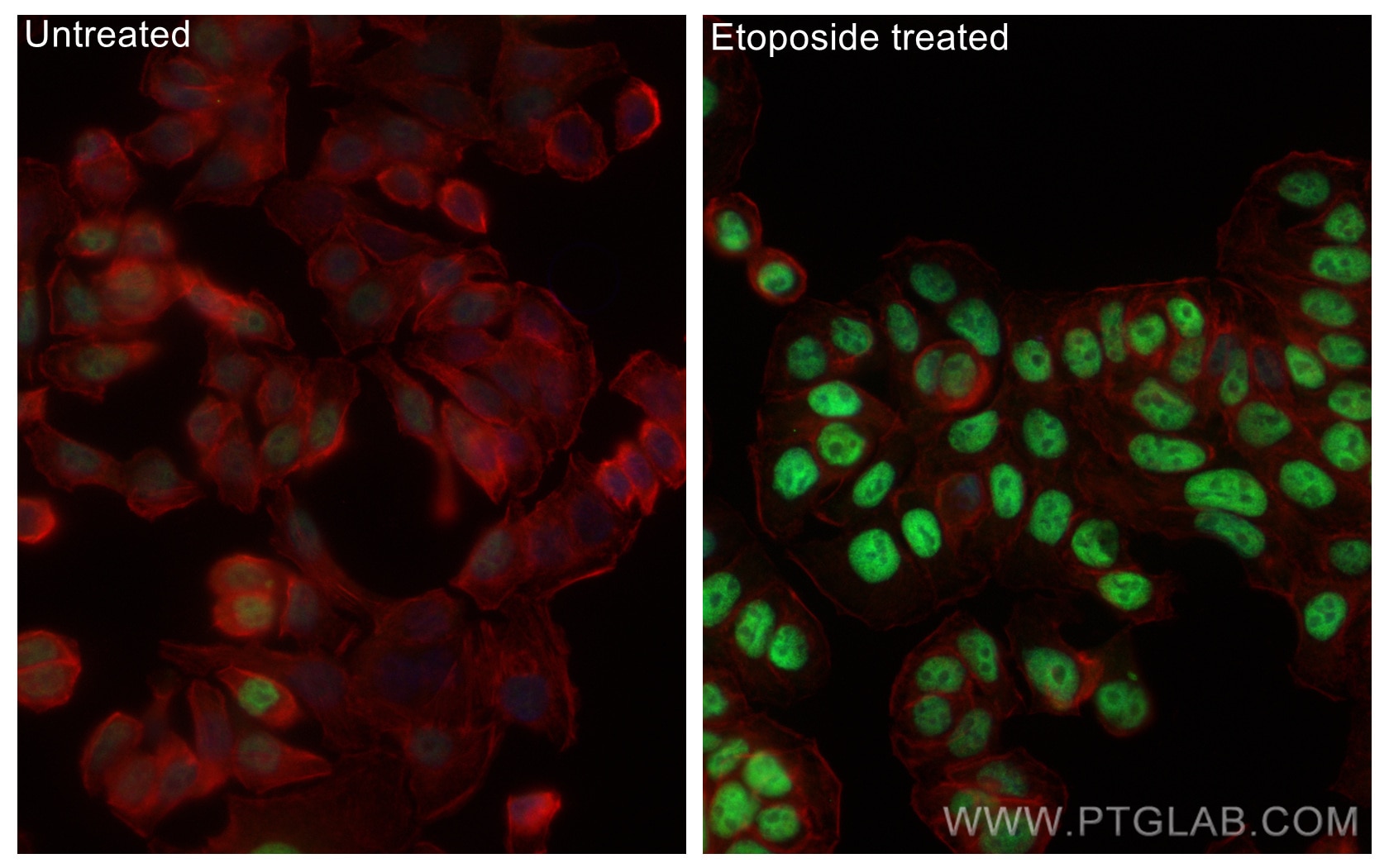Phospho-P53 (Ser15) Polyklonaler Antikörper
Phospho-P53 (Ser15) Polyklonal Antikörper für WB, IF/ICC, ELISA
Wirt / Isotyp
Kaninchen / IgG
Getestete Reaktivität
human und mehr (1)
Anwendung
WB, IHC, IF/ICC, ELISA
Konjugation
Unkonjugiert
Kat-Nr. : 28961-1-AP
Synonyme
Geprüfte Anwendungen
| Erfolgreiche Detektion in WB | mit Etoposid behandelte HT-29-Zellen |
| Erfolgreiche Detektion in IF/ICC | mit Etoposid behandelte HT-29-Zellen, HT-29-Zellen |
Empfohlene Verdünnung
| Anwendung | Verdünnung |
|---|---|
| Western Blot (WB) | WB : 1:1000-1:4000 |
| Immunfluoreszenz (IF)/ICC | IF/ICC : 1:200-1:800 |
| It is recommended that this reagent should be titrated in each testing system to obtain optimal results. | |
| Sample-dependent, check data in validation data gallery | |
Veröffentlichte Anwendungen
| WB | See 32 publications below |
| IHC | See 2 publications below |
| IF | See 2 publications below |
Produktinformation
28961-1-AP bindet in WB, IHC, IF/ICC, ELISA Phospho-P53 (Ser15) und zeigt Reaktivität mit human
| Getestete Reaktivität | human |
| In Publikationen genannte Reaktivität | human, Maus |
| Wirt / Isotyp | Kaninchen / IgG |
| Klonalität | Polyklonal |
| Typ | Antikörper |
| Immunogen | Peptid |
| Vollständiger Name | tumor protein p53 |
| Berechnetes Molekulargewicht | 44 kDa |
| Beobachtetes Molekulargewicht | 53 kDa |
| GenBank-Zugangsnummer | BC003596 |
| Gene symbol | P53 |
| Gene ID (NCBI) | 7157 |
| Konjugation | Unkonjugiert |
| Form | Liquid |
| Reinigungsmethode | Antigen-Affinitätsreinigung |
| Lagerungspuffer | PBS with 0.02% sodium azide and 50% glycerol |
| Lagerungsbedingungen | Bei -20°C lagern. Nach dem Versand ein Jahr lang stabil Aliquotieren ist bei -20oC Lagerung nicht notwendig. 20ul Größen enthalten 0,1% BSA. |
Hintergrundinformationen
The p53 tumor suppressor protein plays a major role in cellular response to DNA damage and other genomic aberrations. Activation of p53 can lead to either cell cycle arrest and DNA repair or apoptosis . DNA damage induces phosphorylation of p53 at Ser15 and Ser20 and leads to a reduced interaction between p53 and its negative regulator, the oncoprotein MDM2. p53 can be phosphorylated by ATM, ATR, and DNA-PK at Ser15 and Ser37. Phosphorylation impairs the ability of MDM2 to bind p53, promoting both the accumulation and activation of p53 in response to DNA damage.
Protokolle
| PRODUKTSPEZIFISCHE PROTOKOLLE | |
|---|---|
| WB protocol for Phospho-P53 (Ser15) antibody 28961-1-AP | Protokoll herunterladen |
| IF protocol for Phospho-P53 (Ser15) antibody 28961-1-AP | Protokoll herunterladen |
| STANDARD-PROTOKOLLE | |
|---|---|
| Klicken Sie hier, um unsere Standardprotokolle anzuzeigen |
Publikationen
| Species | Application | Title |
|---|---|---|
Adv Sci (Weinh) Transgelin Promotes Glioblastoma Stem Cell Hypoxic Responses and Maintenance Through p53 Acetylation | ||
Aging Cell Excessive processing and acetylation of OPA1 aggravate age-related hearing loss via the dysregulation of mitochondrial dynamics | ||
Acta Pharmacol Sin Exosomes are involved in total body irradiation-induced intestinal injury in mice. | ||
Cancer Cell Int Marine natural product Methyl mycophenolate inhibits gastric cancer growth through regulating p53 and the downstream pathways | ||
J Nutr Biochem Lycopene suppresses gastric cancer cell growth without affecting normal gastric epithelial cells | ||
Clin Epigenetics Comprehensive comparison between azacytidine and decitabine treatment in an acute myeloid leukemia cell line |





